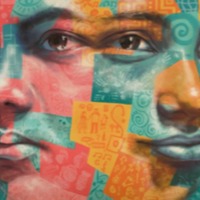
On the way there we were all in a van and there were two policemen who went ahead on a motorbike. There was one more who stayed with us, he spoke into his radio to keep in touch with the others the whole way.
The first place I worked was a clothing factory. We worked from six in the morning until nine at night. We were not allowed outside and we each had to pay the police 500 baht every month. We had to buy all our food there. The owner sold it to us. By the end of the month, after we took out the cost of food and the money for the police, there was almost nothing left.
Narrative provided by Radio Free Asia









